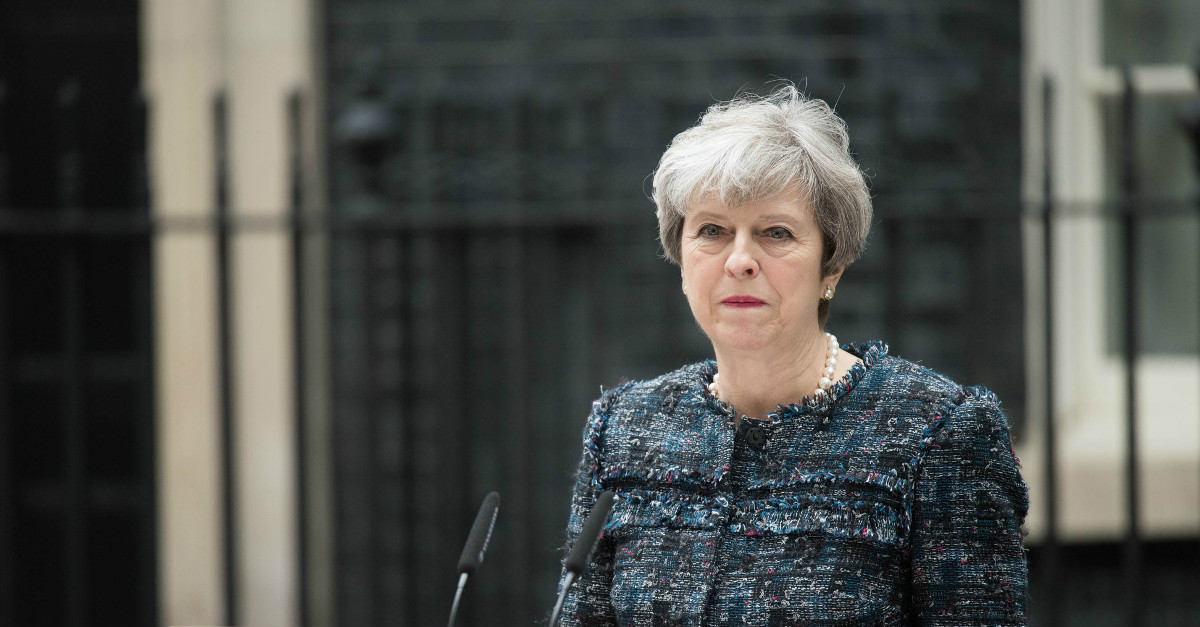The great city of London was in a state of siege last Saturday, like the great northern English city of Manchester less than two weeks prior. And British Prime Minister Theresa May, hoping to secure her first mandate in the general election this Thursday, wants her countrymen to know that she’s a tough cookie on terrorism—so tough, in fact, that she’s willing to trample civil liberties in the name of national security.
Videos by Rare
According to May, the U.K. security services and police officers need more discretion to keep the public safe from attacks. “And if human rights laws stop us from doing it,” May said, “we will change those laws so we can do it.”
In May’s opinion, four things need to happen. Terrorism sentences need to be lengthier; the ideology fueling terrorism must be stamped out; the police need more power to do their jobs; and Internet companies must no longer allow their sites to house the kind of extremist messaging that persuades impressionable, frustrated young men and women towards indiscriminate violence. Britain, May said, cant go about business as usual. Brits need to engage in “some difficult and often embarrassing conversations” about what they’re doing wrong.
RELATED: Following the London Bridge attack, Britain wants to clamp down on the Internet
After every major terrorist attack in the West, the debate inevitably drifts to the balance between security and liberty. How can governments prevent terrorists from killing and injuring civilians without infringing on the privacy rights of their citizens? It’s a question that doesn’t have a perfect answer, and the debate arouses such passion on both sides of the argument that it’s unlikely there will ever be a solution that satisfies everyone.
Police departments and intelligence services are constantly asking for more authority to conduct surveillance. Think about the Patriot Act and the USA Freedom Act in the U.S., the Investigatory Powers Act in the U.K., and the multiple state of emergency declarations in France that allow police to search houses and businesses without warrants.
Understandably, all of those powers spook the civil liberties community. If the intelligence services are constantly on guard for terrorists in their midst, groups like the ACLU, the Center for Constitutional Rights, and libertarian and liberal lawmakers are always on alert for abuses committed by the intelligence services. And yes, there have been many abuses: in one infamous episode, a National Security Agency employee used surveillance tools to determine whether his partner was romantically involved with someone else. Abuse of authority, even the perception of abuse, can shift the public’s mood rapidly.
RELATED: How France’s anti-terrorism state of emergency became a civil liberties nightmare
The danger, of course, is that after a major terrorist incident, the pendulum will swing too far to the side of security, while the meter shifts in the other direction when terrorism is less common. We in the West have failed to figure out what the perfect middle ground is, perhaps because everyone has their own definition of what the middle ground should be.
Over the coming weeks and months, British MPs will go back to the drawing board and try to come up with that all-elusive perfect solution. They will once again be sadly disappointed.



